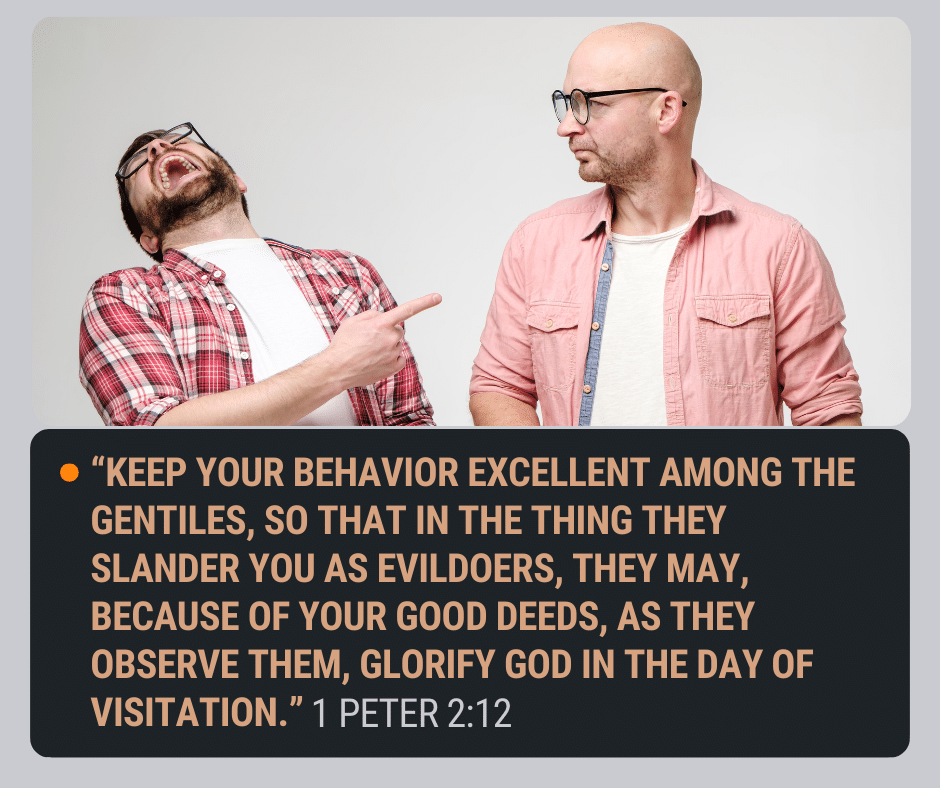Look, I get it. I’m weird.
As a Christian, though, I’m supposed to be weird, right?
My lifestyle and the things that I do (and don’t do) are in sharp contrast to people I know in the world. My values are different, my goals are different, and my choices are different. That’s how it’s supposed to work.
(By the way, I’m not unique. I would imagine that a lot of people that are reading this right now and are living for God are in the exact same boat. We’re just a weird bunch.)
That weirdness isn’t a bad thing. In many ways, it can point people to Christ as they ask us why we live the way we do (1 Peter 3:15).
And, if done properly, it can also make people respect us. Even if they absolutely disagree with how we live our life.
Abraham Was Different
Abraham’s homeland was Ur of the Chaldees, not Canaan. His descendants would call that area home for centuries afterwards, but in Abraham’s time, he was the stranger on the block.
Despite having lived there for decades by the time Sarah dies, he still recognizes this status in Genesis 23:4: “I am a stranger and a sojourner among you…”
Why bring that up? Because in that day and age, Abraham knew that land was sacred. The literal dirt that you stood on was most likely someone else’s possession. In many ways, it was used to measure your personal net worth.
Eventually, in the time of Moses, land would be a family heirloom, passed down from generation to generation. You couldn’t just hop on realtor.com and buy any lot you wanted — if you wanted it, you had to marry into it or ask very politely.
Which is what Abraham did. He recognized that he would need land for a permanent burial possession for his wife, so he asked very politely. He acknowledged his status and made his humble request.
Abraham Was Respected
The response from the people was equally kind. Rather than act offended at this foreigner’s request, they were shocked he even thought to ask in the first place. They referred to him as a “mighty prince” and told him to choose the best grave in the best part of the land (Genesis 23:6).
What this shows is that Abraham’s time in that area was spent building a reputation of honor. Even though he wasn’t “one of them,” he still commanded enormous respect from the highest offices in the land.
Some may argue that it was because of his wealth, but if his respect was borne out of money, I don’t think the natives’ response would have been so genuine.
It’s impossible to leave this point without noticing a parallel with Lot. Whereas Abraham’s “foreigner” status was respected, Lot’s status as a foreigner made him an object of ridicule and contempt (Genesis 19:9). The difference is most likely in the inhabitants of Sodom, but still — there’s a difference.
We Can Be Different and Respected, Too
I know some Christians who take a lot of pride in their weirdness. In their eyes, the more “different” they are, the more holy they become. It becomes a mark of honor, so they continue to alienate themselves.
I’m not sure that’s the right approach. While I’ll fully admit that I’m different, I also have a lot of the same hobbies and interests as much of the world. I do my best to be in the world, but not of the world (John 17:14).
Part of the reason I do this is so that I can establish relationships with people in the world that I can eventually lead to Christ. If even one of those people that mocks me now will eventually see my behavior and turn to God, then it’s all worth it (1 Peter 2:12).
For that reason, I don’t mind being different from the world. Jesus was different, Paul was different, Abraham was different. I’d say that’s pretty good company to keep.

